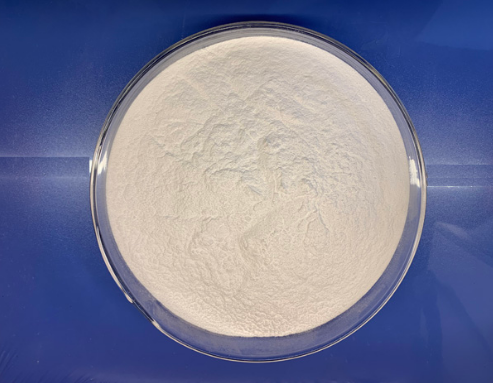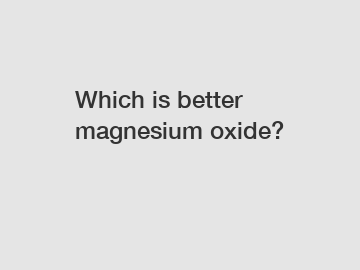What Is the Application of Manganese Sulfate Monohydrate as an Animal Nutrient and Fertilizer?
Feb. 20, 2024
Manganese sulfate is used primarily as a fertilizer and as livestock supplement where soils are deficient in manganese. Manganese sulfate monohydrate plays a crucial role in both animal nutrition and as a fertilizer in agricultural practices due to its significance as a source of manganese, an essential micronutrient for both plants and animals.
Manganese Sulphate Monohydrate
Role in Animal Nutrition:
Manganese is an essential trace mineral necessary for various physiological functions in animals. It's a cofactor for numerous enzymes involved in metabolism, bone formation, reproduction, and immune function. Manganese deficiency in livestock can lead to various health issues and reduced productivity.
Functions of Manganese in Animals:
1. Bone Development: Manganese is involved in the synthesis of proteoglycans and glycosaminoglycans, essential components of cartilage and bone. It contributes to proper bone formation and skeletal development in animals.
2. Reproduction: Manganese plays a role in reproductive health by supporting normal estrus cycles, embryo development, and fetal growth in animals.
3. Enzyme Activation: Manganese is a cofactor for enzymes involved in energy metabolism, including enzymes participating in the metabolism of carbohydrates, amino acids, and cholesterol.
4. Antioxidant Defense: It contributes to the activation of antioxidant enzymes that help combat oxidative stress and protect cells from damage caused by free radicals.
Manganese Sulfate Monohydrate in Animal Feed:
Manganese sulfate monohydrate serves as a key source of manganese in animal feed formulations. Livestock, including cattle, poultry, swine, and others, require manganese in their diets to maintain optimal health and productivity.
Benefits in Animal Nutrition:
1. Bone Health: Adequate manganese levels in feed support proper bone development and strength, reducing the risk of skeletal abnormalities and fractures in animals.
2. Reproductive Performance: Ensuring sufficient manganese intake improves reproductive performance, including fertility rates and successful pregnancies in livestock.
3. Metabolic Processes: Manganese supports various metabolic pathways, aiding in nutrient utilization and overall energy metabolism in animals.
Recommended article:A Comprehensive Guide to the Application and Use of Amino Silanes
TJCY-Coco Sun's Post
What are Chemical Hazards? Types & Examples
10 Questions You Should Know about Vae Redispersible Powder
Pregabalin
What are the benefits of using Construction Grade HPMC?
Ultimate Guide to Preventing Mold with Silicone Caulk in Showers
4. Immune Function: Manganese contributes to a well-functioning immune system in animals, helping them resist infections and diseases.
Role as a Fertilizer:
In agricultural practices, manganese sulfate monohydrate is utilized as a fertilizer to address manganese deficiencies in soils, ensuring optimal plant growth and productivity.
Functions of Manganese in Plants:
1. Photosynthesis: Manganese is an essential component for the photosynthetic process. It's involved in the water-splitting reaction in photosystem II and aids in chlorophyll synthesis, enabling efficient photosynthesis.
2. Enzyme Activation: Similar to its role in animals, manganese activates various enzymes in plants, participating in crucial metabolic processes, including nitrogen metabolism, lignin synthesis, and antioxidant defense mechanisms.
Benefits as a Fertilizer:
1. Correction of Deficiencies: Manganese sulfate corrects manganese deficiencies in soils, enabling plants to access an adequate supply of manganese for their metabolic functions.
2. Improved Plant Health: Ensuring sufficient manganese levels enhances plant growth, root development, and overall plant vigor, leading to increased yield and better crop quality.
3. Stress Resistance: Plants with sufficient manganese are better equipped to withstand environmental stressors, such as drought, disease, and pest attacks, due to enhanced metabolic processes and strengthened defense mechanisms.
Application of Manganese Sulfate as a Fertilizer:
Manganese sulfate monohydrate can be applied to soils either as a soil amendment or as a foliar spray, depending on the severity of manganese deficiency. Soil testing helps determine the appropriate application rate to avoid toxicity while addressing deficiencies effectively.
In summary, manganese sulfate monohydrate serves a dual role—providing essential manganese for animal nutrition, supporting bone health, reproduction, and overall metabolism in livestock, while also acting as a fertilizer in agriculture, correcting manganese deficiencies in soils and promoting optimal plant growth and productivity. Its significance in both animal and plant health underscores its importance in modern agricultural and livestock management practices.
23779-32-0: Is this chemical compound the future of medicine?
1. What is Cas 17689-77-9? Key Information Explained
Top 7 Things You Need to Know to Buy HPMC for Tile ...
What is the price of hydroxyethyl methyl cellulose?
Cumene Sulfonic Acid and Its Ammonium, Calcium ...
labsa-sulfonic acid is a batch of organic sulfur compounds.
What are the benefits of Vinyl End-Blocked Silicone Polymer?
415
0
0
Related Articles












Comments
All Comments (0)